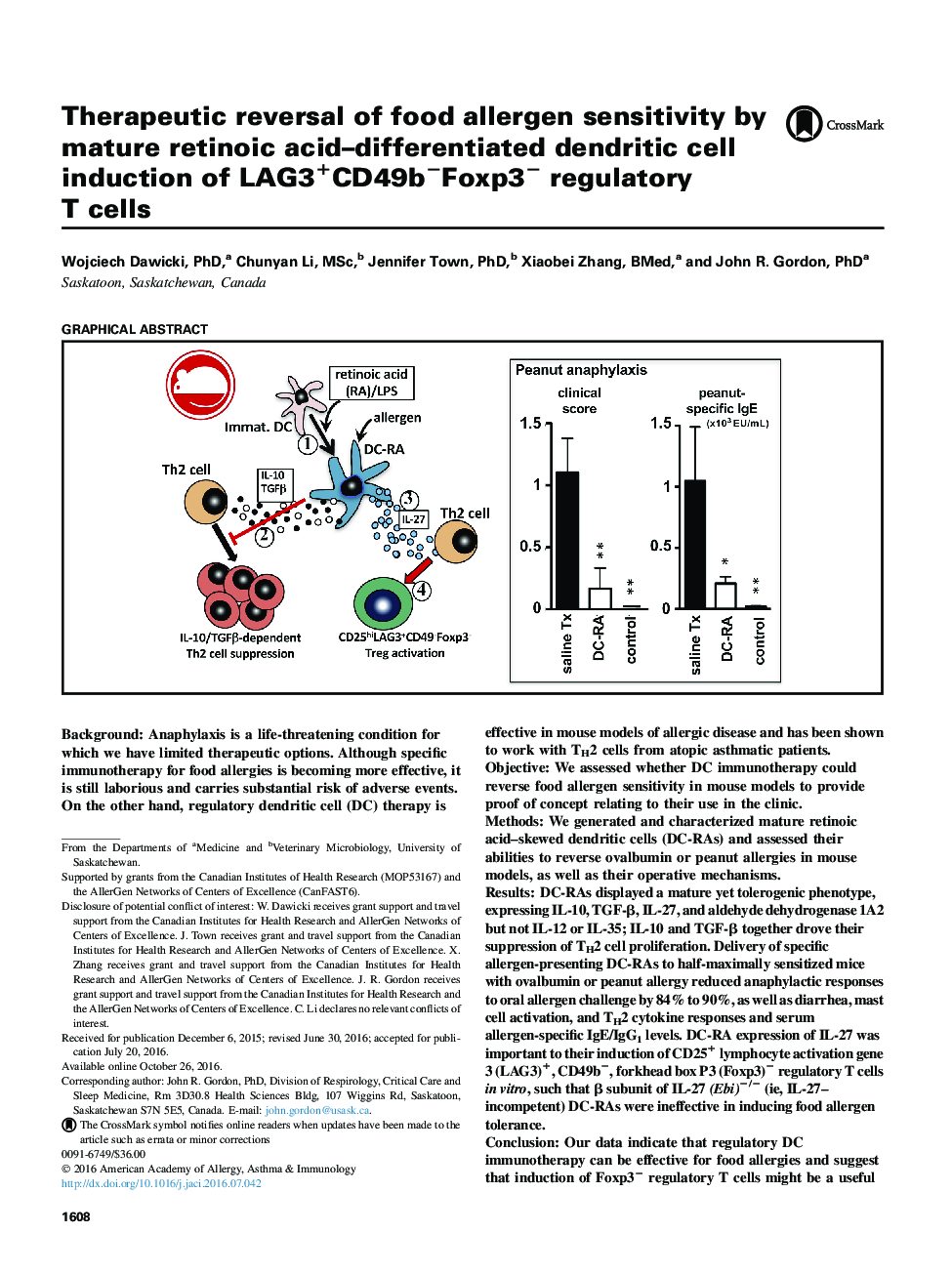| کد مقاله | کد نشریه | سال انتشار | مقاله انگلیسی | نسخه تمام متن |
|---|---|---|---|---|
| 5646604 | 1407068 | 2017 | 16 صفحه PDF | دانلود رایگان |

BackgroundAnaphylaxis is a life-threatening condition for which we have limited therapeutic options. Although specific immunotherapy for food allergies is becoming more effective, it is still laborious and carries substantial risk of adverse events. On the other hand, regulatory dendritic cell (DC) therapy is effective in mouse models of allergic disease and has been shown to work with TH2 cells from atopic asthmatic patients.ObjectiveWe assessed whether DC immunotherapy could reverse food allergen sensitivity in mouse models to provide proof of concept relating to their use in the clinic.MethodsWe generated and characterized mature retinoic acid-skewed dendritic cells (DC-RAs) and assessed their abilities to reverse ovalbumin or peanut allergies in mouse models, as well as their operative mechanisms.ResultsDC-RAs displayed a mature yet tolerogenic phenotype, expressing IL-10, TGF-β, IL-27, and aldehyde dehydrogenase 1A2 but not IL-12 or IL-35; IL-10 and TGF-β together drove their suppression of TH2 cell proliferation. Delivery of specific allergen-presenting DC-RAs to half-maximally sensitized mice with ovalbumin or peanut allergy reduced anaphylactic responses to oral allergen challenge by 84% to 90%, as well as diarrhea, mast cell activation, and TH2 cytokine responses and serum allergen-specific IgE/IgG1 levels. DC-RA expression of IL-27 was important to their induction of CD25+ lymphocyte activation gene 3 (LAG3)+, CD49bâ, forkhead box P3 (Foxp3)â regulatory T cells in vitro, such that β subunit of IL-27 (Ebi)â/â (ie, IL-27-incompetent) DC-RAs were ineffective in inducing food allergen tolerance.ConclusionOur data indicate that regulatory DC immunotherapy can be effective for food allergies and suggest that induction of Foxp3â regulatory T cells might be a useful strategy for tolerance induction in this context.
246
Journal: Journal of Allergy and Clinical Immunology - Volume 139, Issue 5, May 2017, Pages 1608-1620.e3